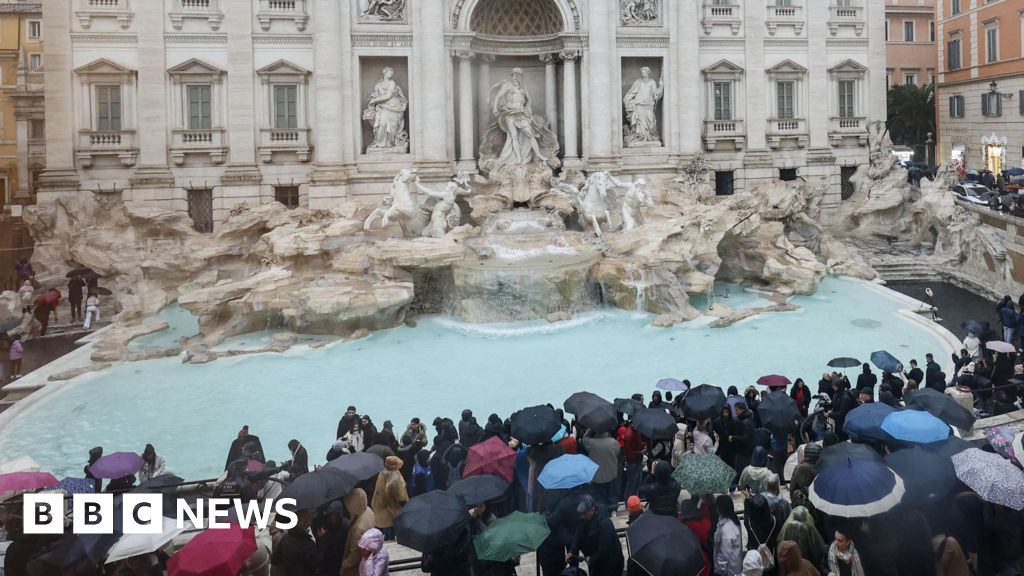Air quality alerts are in place across Canada and the northern United States due to smoke from wildfires, with officials warning residents to "limit time outdoors".
Environment Canada issued alerts for much of Ontario, warning that wildfire smoke had significantly degraded air quality. On Monday, Toronto's air quality ranked among the worst in the world.
In the US, officials issued similar alerts for Chicago through Tuesday evening, with additional precautions advised for babies and the elderly.
Prime Minister Mark Carney will meet emergency responders to assess the situation in Ottawa, as fires burning in Manitoba, Saskatchewan and northern Ontario have forced thousands out of their homes.
"When air pollution levels are high, everyone should limit time outdoors," Environment Canada said in its special alert for Toronto. "Consider reducing or rescheduling outdoor sports, activities and events."
It added that the elderly, pregnant women, infants and young children, people with an existing illness or chronic health condition were more at risk due to the smoke.
Alerts have also been issued across the border in Chicago.
"An Air Quality Alert is in effect through Tuesday evening for the Chicago metro area in Illinois and in northwest Indiana due to unhealthy ozone levels and some lingering effects of Canadian wildfire smoke," the National Weather Service Chicago said in a post on X.
The political implications of the wildfire smoke have also reached Washington.
Last week, six members of Congress wrote to the Canadian ambassador complaining that smoke from Canada's wildfires was making it difficult for Americans to enjoy their summer.
In response, the premier of Canada's Manitoba province accused them of "trying to trivialise" a deadly situation.
The wildfires continue to spread across thousands of hectares.
May and June were particularly destructive months in western Canada, with roughly 30,000 people forced to evacuate in the provinces of Saskatchewan and Manitoba, where local administrations declared a state of emergency.
Out east, a fire that began on Monday on the Bonavista peninsula in Newfoundland doubled in size overnight, destroying several cabins near Chance Harbour, CBC News reported.
Scientists have consistently linked the intensifying wildfire seasons to climate change.
Canada is believed to be warming at twice the global average rate, and its Arctic regions are heating up nearly three times the global pace, scientists have warned.
.png)
 5 months ago
22
5 months ago
22








 English (US) ·
English (US) ·